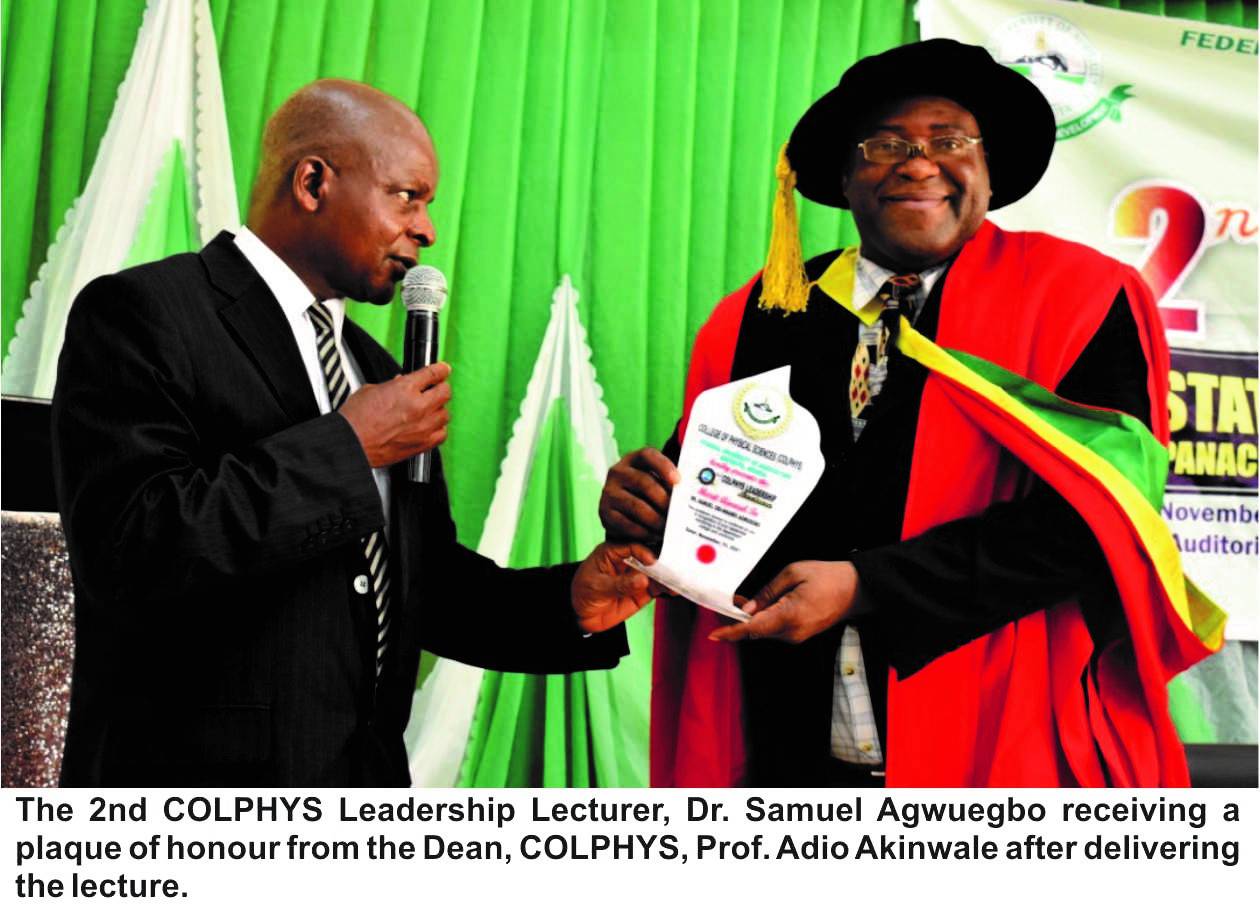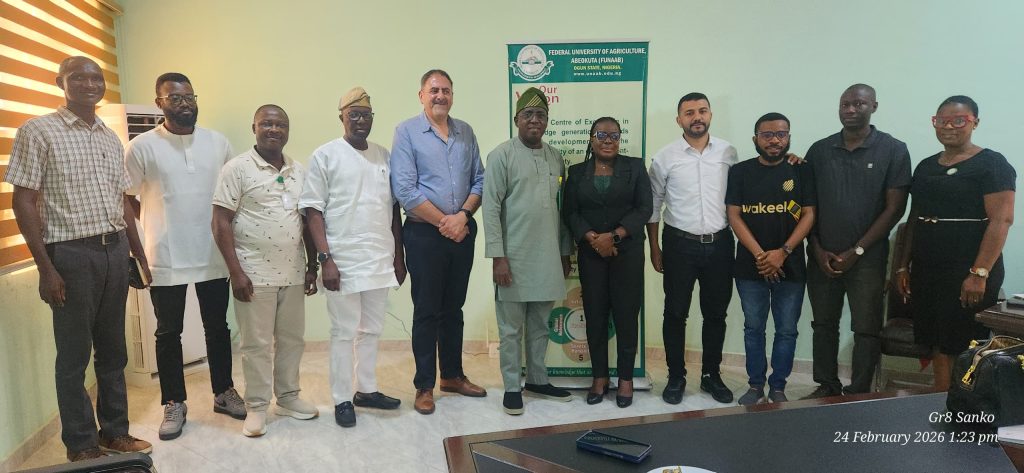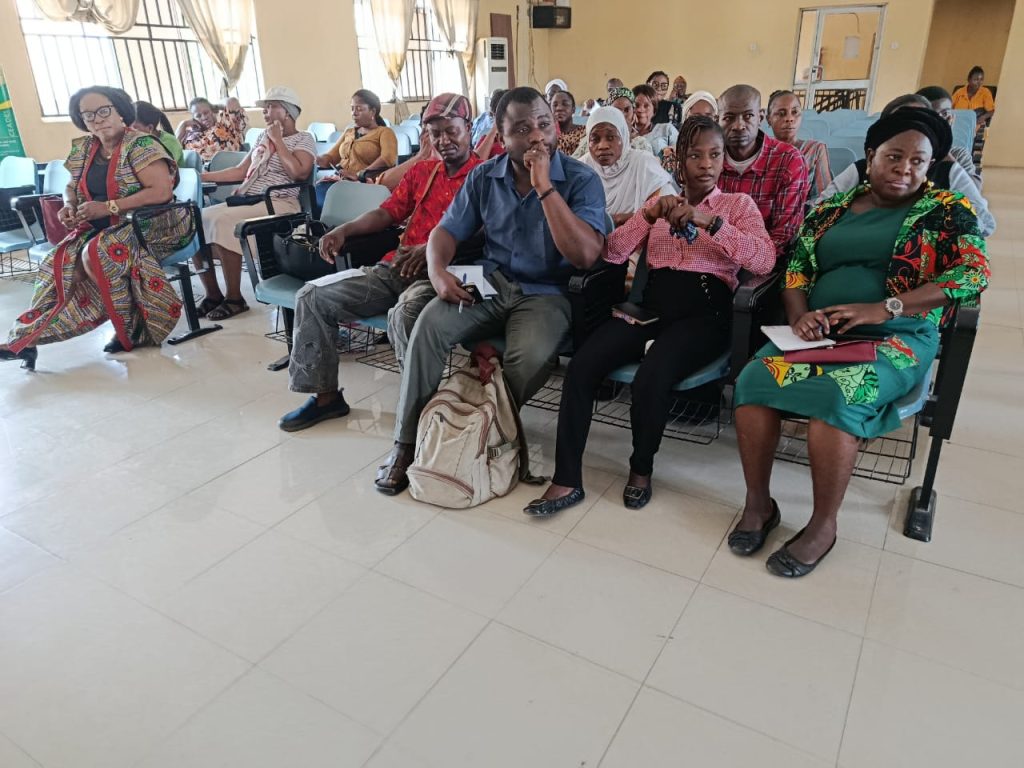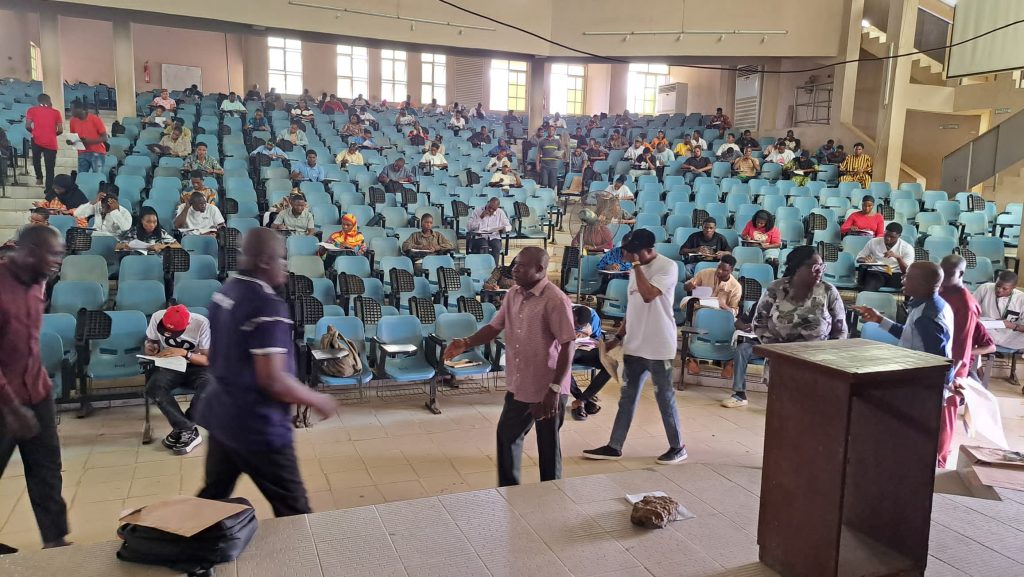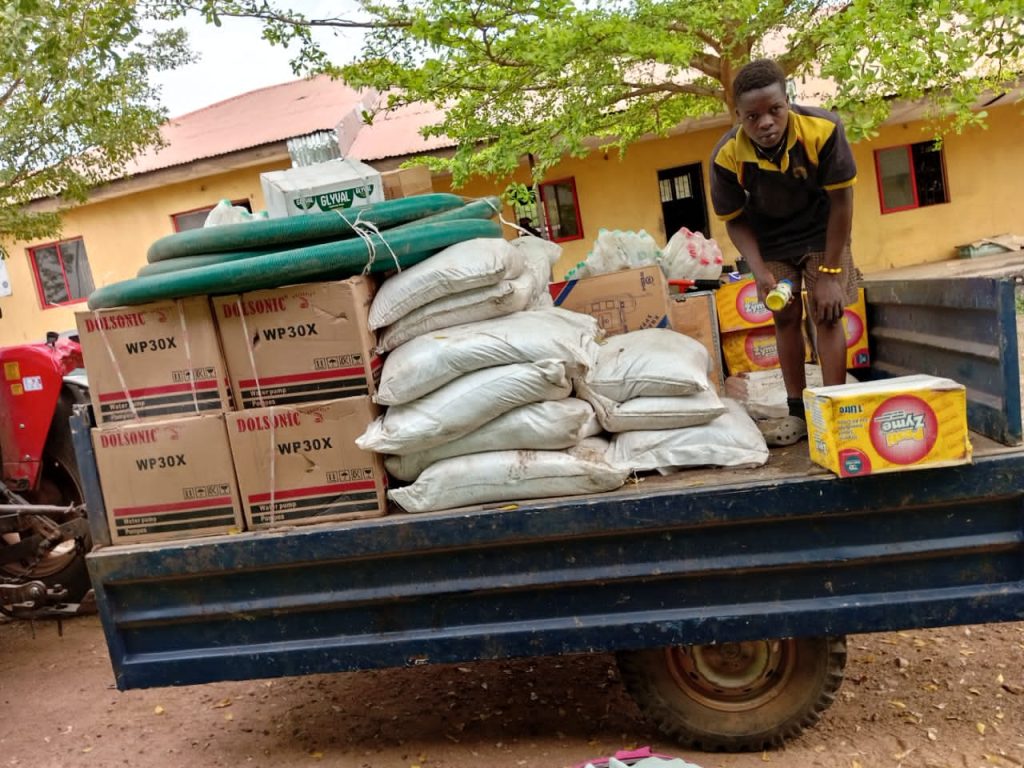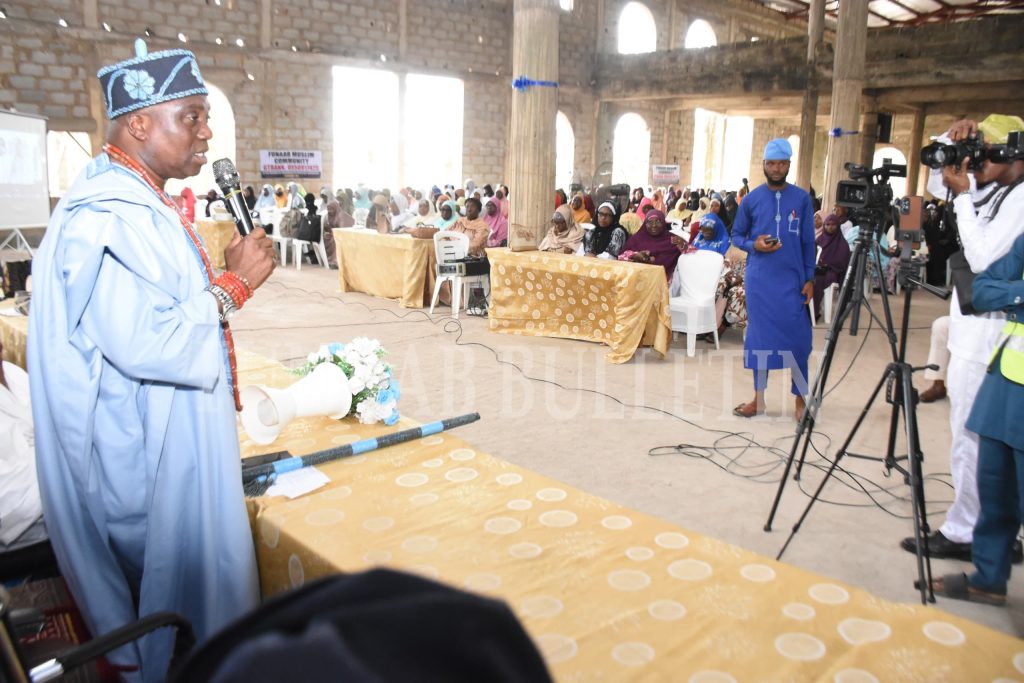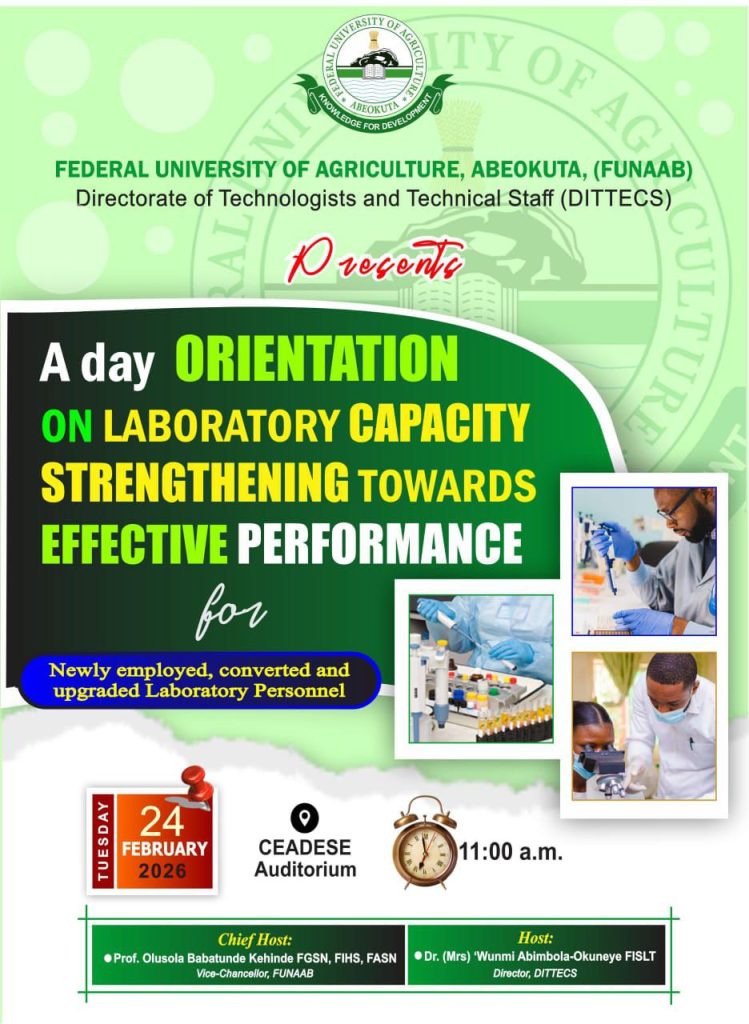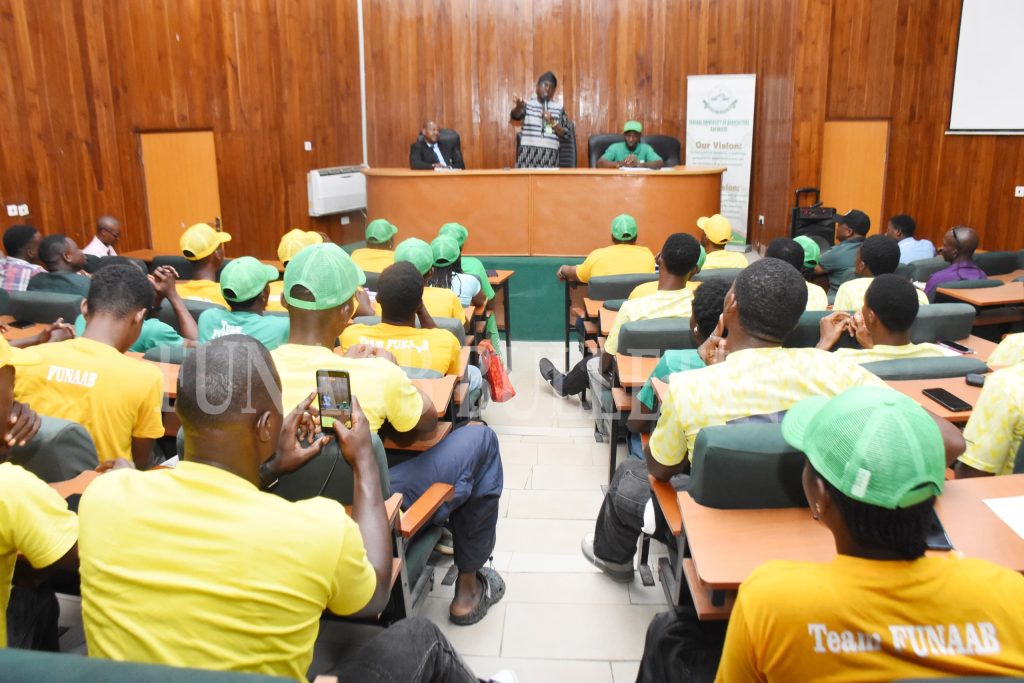Last Updated on February 2, 2022 by FUNAAB
An Associate Professor of Statistics in the College of Physical Sciences (COLPHYS), Dr. Samuel Obi-Nnamdi Agwuegbo has decried the non-recognition of Statistics in Nigeria even as he calls for Statisticians to be accepted as professionals in the country.
Dr. Agwuegbo made this call while delivering the 2nd COLPHYS Leadership Lecture titled, “Statistical Reasoning: The Panacea for National Growth and Development”.
Speaking during the lecture, he stated that the lack of identity and visibility of Statistics in Nigeria is one of the causes of the decline in the nation’s economic growth and development, stressing that the profession lacks identity and visibility and has not developed into an accepted discipline for historical and other reasons.
The Don further noted that Statistics is a scientific discipline that should gain influence and visibility, adding that any university that wishes to survive in the world today must be abreast of the statistical technology available.
According to him, “Most of the statistics that is practised for serious purposes today, whether for academic research, for industrial product development, for business, government, or for many other purposes, is carried out by non-statisticians. “.
Dr. Agwuegbo affirmed that Statistical reasoning can be viewed in terms of scientific method used in studying human behaviour, stressing that the Statistics field is more than the rules and methods for dealing with data and has become a way of acting and thinking about the world.
“We live in a stochastic world where events are governed by a complex structure of probabilities. All of the seemingly random events that take place around us in our social, biological and
physical world make for a confused and chaotic picture. But there are regularities in randomness, and it is statistics that enables us to study and gain an understanding of these regularities”.
“Statisticians realise this, and use statistical methods in our professional lives to help scientists and policy makers in their work. But more than that, statistical training contributes to an understanding of the world around us”, he stressed.
He noted that good and reliable statistics are essential for measuring progress in reaching development goals and in providing essential information about the effectiveness of policies and programmes.
He added that the field is becoming the instrumentality through which growth is now measured and by which economic development hereafter will be largely controlled.
The Lecturer however argued that the problems of the 21st Century cut across several branches and cannot be compartmentalised in a clearly distinct way. He reiterated that the most important driving force in the shift of emphasis in statistics from mathematics towards its roots in scientific inference is the computer revolution.
Meanwhile, the Dean of COLPHYS, Prof. Adio Akinwale, in his Introductory Remarks lauded the University Management for allowing the College to organise the Lecture, stating that leadership role is important to the growth of the society and every individuals needs to acquire knowledge on what leadership entails.
He appreciated the Guest Lecturer for his deep research into the topic, stating that the theme is apt and it is an avenue to elucidate the field of statistical reasoning and its relevance in national growth and development.
Prof. Akinwale however encouraged the participants to make use of the knowledge acquired for the society as a whole.

